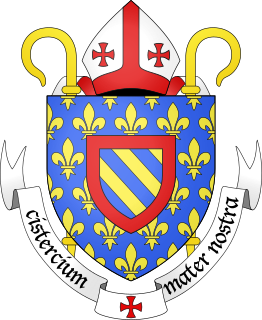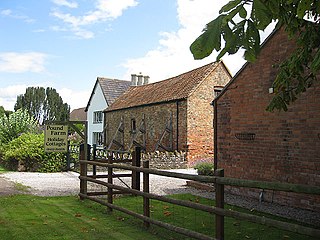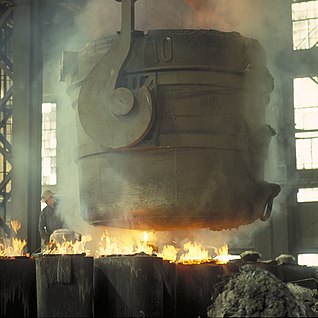
De Phenix is a smock mill in Nes, Ameland, Friesland, Netherlands which was built in 1880 and is in working order. The mill is listed as a Rijksmonument.
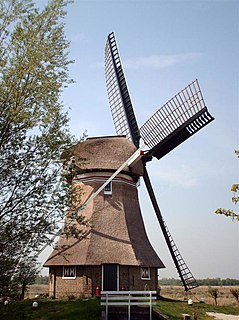
De Reiger is a smock mill in Nijetrijne, Friesland, Netherlands which was built in 1871. The mill has been converted into a holiday home. It is listed as a Rijksmonument.

De Hersteller is a smock mill in Sintjohannesga, Friesland, Netherlands which was built in 1857. The mill has been converted to residential use but can turn in the wind. It is listed as a Rijksmonument.
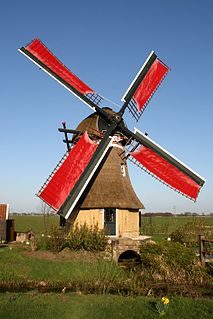
The Ouddeelsmolen, Lytse Geast or Swarte Prinsch is a smock mill in Tytsjerk, Friesland, Netherlands which was built in 1900 and has been converted to a holiday cottage. Restored so that it can turn in the wind, it is listed as a Rijksmonument.

De Gooyer is a smock mill in Wolvega, Friesland, Netherlands which was built in 1916. It has been restored to working order. It is listed as a Rijksmonument.

De Drie Waaien is a tower mill in Afferden, Gelderland, Netherlands which was built in 1869 and is in working order. The mill is listed as a Rijksmonument.

Schoonoord is a tower mill in Alverna, Gelderland, Netherlands which was built in 1887 and is in working order. The mill is listed as a Rijksmonument.

De Hoop is a tower mill in Arnhem, Gelderland, Netherlands which was built in 1846 and is in working order. The mill is listed as a Rijksmonument.
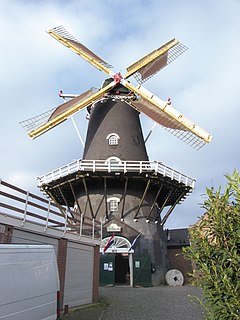
De Kroon or the Klarendalse Molen is a tower mill in Arnhem, Gelderland, Netherlands which was built in 1870 and is in working order. The mill is listed as a Rijksmonument.
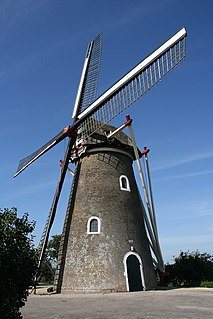
De Vrijheid is a tower mill in Beesd, Gelderland, Netherlands which was built in the 18th century and is in working order. The mill is listed as a Rijksmonument.

The Braamse Molen or Koenders Möl is a tower mill in Braamt, Gelderland, Netherlands which was built in 1856. One of only two mills in the Netherlands fitted with Beckers sails, the mill is listed as a Rijksmonument.

De Prins van Oranje is a tower mill in Bredevoort, Gelderland, Netherlands which was built in 1870 and has beem restored to working order. The mill is listed as a Rijksmonument.

De Kempermolen is a tower mill in Breedenbroek, Gelderland, Netherlands which was built in 1882 and has beem restored to working order. The mill is listed as a Rijksmonument.

Bronkhorstermolen is a tower mill in Steenderen, Gelderland, Netherlands which was built in 1844 and has been restored to working order. The mill is listed as a Rijksmonument.

De Prins van Oranje is a tower mill in Buren, Gelderland, Netherlands which was built in 1716 and has been restored to working order. The mill is listed as a Rijksmonument.

De Hoop or 't Jach is a tower mill in Culemborg, Gelderland, Netherlands which was built in 1845 and has been restored to working order. The mill is listed as a Rijksmonument.

Johanna, De Korenbloem or De Molen van Schennink is a tower mill in Culemborg, Gelderland, Netherlands which was built in 1888 and has been restored to working order. The mill is listed as a Rijksmonument.

De Vlinder is a tower mill in Deil, Gelderland, Netherlands which was built in 1913 and has been restored to working order. The mill is listed as a Rijksmonument.

Aurora is a tower mill in Dichteren, Gelderland, Netherlands which was built in 1870 and has been restored to working order. The mill is listed as a Rijksmonument.

Benninkmolen is a smock mill in Doetinchem, Gelderland, Netherlands which was built in 1921 and has been restored to working order. The mill is listed as a Rijksmonument.





